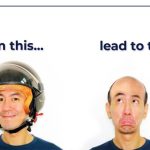Have you recently received a diabetes diagnosis? Have you noticed an increase in the number of hairs on your brush? Alternatively, even if you’ve had diabetes for a long time, it’s still worth evaluating whether the disease is causing your hair loss.
Alopecia androgenetica, alopecia areata, and telogen effluvium are the three types of hair loss seen with diabetes.
Male pattern baldness is known as alopecia androgenetica, and it can affect both sexes due to hormonal changes. When the immune system attacks the hair follicles, alopecia areata develops, while telogen effluvium is hair loss that happens as a result of stress or other underlying diseases like anemia or thyroid disease etc
We asked Dr. Prajct Sao, MD, member of Indian association of Dermatology, Venereology and Leprology to explain how diabetes might affect your hair and what therapies are available for diabetes-related hair loss.
Diabetes is frequently associated with other autoimmune disorders.
Type 1 diabetes is an autoimmune disease in which the immune system assaults the insulin-producing cells in the pancreas.
Unfortunately, this kind of diabetes is frequently accompanied by other immune disorders, such as alopecia areata, an autoimmune condition that causes your hair to fall out in huge coin-like patches.
Minimize your exposure to pollutants, eat a nutritious diet low in sugar and trans fats, and search for strategies to reduce inflammation in your body to reduce autoimmune responses.
Corticosteroids injected into the problem location on the scalp are generally effective in treating hair loss caused by autoimmune responses.
Medication that reduces blood glucose levels may increase the likelihood of hair loss.
Metformin, one of the most commonly prescribed blood sugar drugs, can cause hair loss by inhibiting vitamin B12 absorption in the gut.
If you’re on metformin, talk to your doctor about other options, or ask about dietary changes that could let you take a lower amount.
High blood sugar levels have an effect on scalp circulation.
Excess glucose in the bloodstream is a symptom of diabetes. Diabetes that is uncontrolled can harm organs, tissues, and blood vessels.
When blood vessels are injured, your body is unable to transfer oxygen and nutrients to your hair follicles, causing the hair development cycle to be disrupted.
Focusing on a diet rich in foods with a low glycemic index is the best strategy to avoid hair loss caused by high blood sugar.
With diabetes, you can regrow hair.
When it comes to regrowing hair with diabetes, the most important thing to remember is to cut out the bad meals and get more active. By doing these actions, you will be able to better control your blood sugar levels while using fewer amounts of drugs.
Although this method can keep your hair loss from getting worse, your hair follicles may require a boost to get back into action.
Medication, topicals, low-laser treatment, platelet-rich plasma (PRP) injections, and hair transplants are just a few of the hair restoration techniques Dr. Prajct has worked with. Make an appointment with him to learn how you might regain your hair.
Why Choose Cozmaa:
- Expert Doctors Team
- Mumbai’s leading clinic
- 10+ Years Experience
- 4 Branches in Mumbai
- 36000+ successful Treatments
Treatments Offered:
- Hair Loss Treatment
- Hair Transplants
- Laser Hair Removal
- Skin & Nail Treatment
- Dermatology & Skin Pigments Removal
5 Star Reviews:
- Just Dial
- Practo &
- Sulekha
Location (Mumbai):
- Lower Parel
- Borivali
Book a Consultation by our expert Doctors, Call or WhatsApp 9702104648 or Visit our Website www.cozmaa.com








